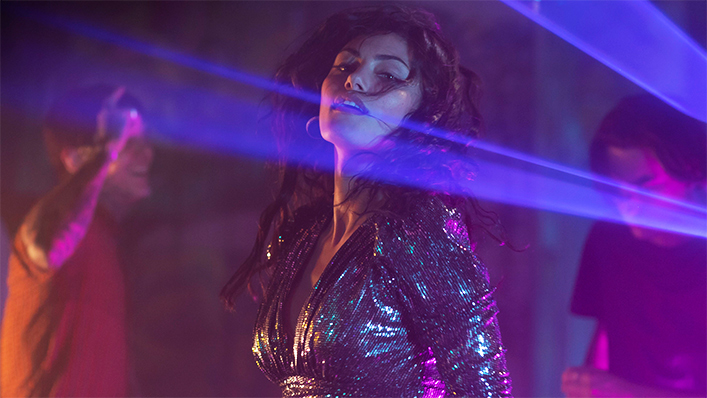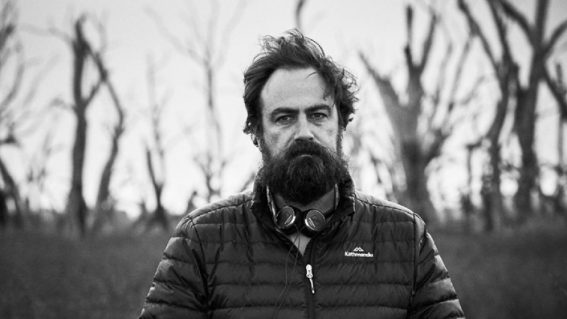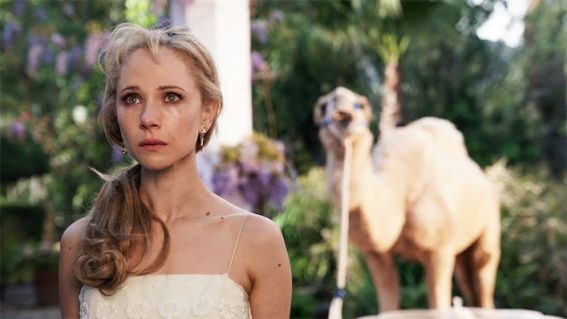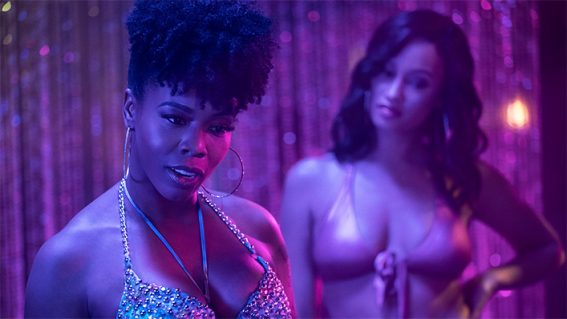Bloom season 2 is a provocative slice of Australian magical realism

Stan‘s hit mystery-drama about magical berries that provide the fountain of youth returns for a second season—with a killer cast including Phoebe Tonkin, Jacki Weaver, Bryan Brown and Bella Heathcote.
The return of Bloom, Stan’s Australian Gothic magical realist drama, for a second bat is somewhat surprising. Although allowances were made in the final episode of season one for a continuation the series seemed, thematically and dramatically, all wrapped up, its lessons learned, its villains punished, its meditations on age, regret, and second chances played out. And yet here comes season two, currently streaming, which uses its six brisk episodes to draw out Bloom’s central conceit in interesting and provocative ways.
See also
* All new movies & series on Stan
* All new streaming movies & series
That conceit is, of course, that in the rural town of Mullan there sometimes grows a seemingly magical berry that can restore youth. In season one, Alzheimer’s-addled Gwen Reed (Jacki Weaver), among others, was temporarily de-aged (Phoebe Tonkin plays her younger self), while her doting husband Ray (Bryan Brown) preferred to stay old. The end of the season saw Gwen returned to senescence, but when we catch up, she’s young again thanks to a second berry, and this time the effect looks to be permanent. The hunt is on for yet another berry so that Ray can join her in seemingly eternal youth.
But what was once a local secret is now seeping into the larger world, and strangers are coming to town intent on unravelling the mystery of the berries. Jacqueline McKenzie crops up as biochemist Anne, with her newly youthful estranged husband (Ed Oxenbould) in tow; her terminal cancer diagnosis gives no small amount of impetus to her investigations into the berries. Meanwhile new local priest Father John (Toby Schmitz) sees the berries’ revitalizing properties as literally miraculous, and opportunity to draw people back to the flock—even if the church higher-ups disagree.
But while these plotlines carefully expand the universe of Bloom and the ramifications of its single fantastical element, the real draw remains the simple human stories at the heart of the series, with various characters trying to amend the mistakes of the pat, but frequently simply repeating them. Gary Sweet gives good value as alcoholic ex-cop Donnie, father to local Sergeant Rhonda Stokes (Genevieve Morris). But the standout this time is Bella Heathcote, joining the cast to play the younger version of the repressed and proper Loris (Anne Charleston), who is more than a little horrified at the libertine excesses of modern youth and wants nothing more than to be old again—but not before she mends fences with her daughter Julie (Nadine Garner) and granddaughter Isabella (Lucy Barrett). Heathcote’s performance as a prim old lady trapped inside a young woman’s body and social milieu is simply outstanding; a delicate balance of pathos and comedy.
Various plotlines twine around each other and intersect. But series creator Glen Dolman and his writing team set up clear polarities—chiefly faith (Schmitz’s priest) versus science (MacKenzie’s biotech boffin), past versus present, acceptance versus regret—allowing the characters to explore the territory between them. It does feel a bit “middle episode”, though; while some characters have their storylines resolved (sometimes terminally) this is very much setting us up for another return to miraculous Mullan and the moral quandaries its magical berries offer.
The question going forward is really how far Dolman and co. will extend their premise, and whether that premise will survive the rigors of a larger palette. It’s one thing to explore the implications of restored youth and immortality on a sleepy backwater town, but it’s a story of entirely different magnitude when such issues are of national or even global significance, which seems to be the direction in which Bloom is drifting. In its current form, though, Bloom stands as a smart and trenchant piece of Australian magical realism.


















